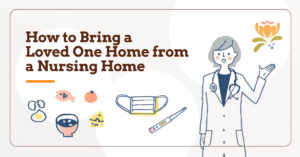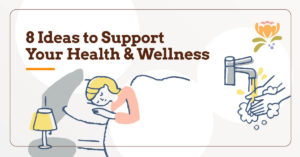 Facing change is always difficult and it can be filled with uncertainty especially when decisions must be made regarding care for our elderly parents and loved ones. Moving from independent living to one with any level of care is a decision that should not be taken lightly. The most difficult hurdle, however, is knowing when it is time to find additional care for your loved one. No one wants to force a loved one into a situation they are not comfortable with.
Facing change is always difficult and it can be filled with uncertainty especially when decisions must be made regarding care for our elderly parents and loved ones. Moving from independent living to one with any level of care is a decision that should not be taken lightly. The most difficult hurdle, however, is knowing when it is time to find additional care for your loved one. No one wants to force a loved one into a situation they are not comfortable with.
Sometimes there are immediate factors that require assisted living for aging family members. This could be a traumatic injury or significant health issue that obviously precludes an individual from living on their own without assistance. More likely, however, caregivers are faced with having to determine when it is time to seek a more interactive level of care.
Warning Signs That Require Immediate Action
There are a few red flag changes in behavior or habits that can necessitate a decision be made in a very short time frame. These include:
-
An increase in falls or accidents
- Personal safety is paramount. If a loved one has been slipping more frequently while walking or is falling on stairs, this can be a sign of disorientation, failing ability to balance, or increased frailty. Increased bruising can be a tip-off that accidents are occurring more often. Researching technology and strategies to help prevent falls can help keep your loved one safe as they age in place.
-
A chronic health issue that is getting noticeably and progressively worse
- The inability to manage a recurring health issue needs to be addressed immediately. The deterioration of health can be due to medicine mismanagement, either taking wrong doses or missing scheduled doses, or a worsening of the disease that hasn’t been reviewed by a doctor.
-
An inability to complete activities of daily living (ADL)
- Activities of Daily Living are the everyday personal tasks that should be able to be performed by an individual with no assistance. These include activities like bathing and the ability to use the bathroom, eating and dressing. Once an individual cannot perform these tasks on their own, there needs to be professional care provided for personal care services.
Warning Signs That Require A Conversation With An Expert Caregiver
Other changes may occur more gradually and be harder to spot. The signs indicating that a person may be ready for help with daily living often do not represent an immediate danger, allowing caregivers time to assess all of their options.
The friend or loved one that interacts with a person on a regular basis is most likely to notice a change in behavior or attitudes. Here are a few things to take notice of the next time you visit. If you notice that one or more of these benchmarks are a concern, talk to a professional aging counselor.
-
Change in appearance
- Starting with the hello hug, notice if a person has lost – or gained – weight that can’t be explained by a temporary situation, such as a recent cold or change in medication. Weight fluctuation can be a sign of improper or neglected nutrition. It may also be a sign of a serious medical condition.
-
Poor Personal hygiene
- If an individual normally very well put together with clean, appropriate outfits suddenly takes little to no care with their appearance, they may be depressed or not have the ability to perform the task. Gentle questioning can often identify the root cause. Additionally, notice if there is a new or foul body odor on the person. This can signal that a person is not routinely bathing, or it may also be a sign of illness.
-
Lack of social interaction
- Everyone needs some level of interaction with peers and family. Not only does this ensure a person is not isolated but having a support system provides another group of people that will notice if something is wrong or different in a person’s life. Pulling away from activities they have always enjoyed can again be a sign of depression or a lack of confidence in their abilities.
-
Change in disposition
- When you look at this person, do you see a vibrant individual or one that seems withdrawn? Are they exhibiting abnormal mood swings? Do you notice a lack of energy? Any change in personality warrants continuing observation. If it continues, a medical professional can help determine the cause and decide if medication may be needed.
-
Uneasiness driving
- The fear of losing freedom through driving is one of the top concerns for aging individuals. However, evaluating driving ability is a must for both the driver’s safety as well as others. Some things to look for are increased nicks and dings on the car (that often can’t be explained), a tentativeness while driving, or lack of reaction time.
-
Inattention to household needs
- Some household issues are readily apparent, such as dirty dishes stacked in the sink, unopened mail on the counter or overgrown bushes outside. Other household neglect to look for includes seeing if there is expired or spoiled food left in the pantry or refrigerator, plants or pets that aren’t being well tended, or unpaid bills and mismanaged finances. A large number of carry-out containers can indicate an unwillingness or inability to cook for themselves.
-
Safety concerns
- Is there a lot of clutter accumulating in the house? Items left on the floor can be a tripping hazard. Smoke stains or char marks on appliances can indicate forgetfulness while cooking. Unfinished repair projects, such as changing a lightbulb or tightening a railing, can also indicate a need for assistance. Learn more about some of the top health and safety concerns for seniors and how to address them as you evaluate the situation for your loved one.
If you are the primary caregiver – or person that interacts most regularly with a loved one – don’t be afraid to talk to others in the individual’s circle as well. Very often friends can give a better picture of how someone is truly faring, rather than the “expected” guest. Equally as important, those that are or will be most responsible for the long-term care need to evaluate their needs. Are you capable of providing the necessary care while balancing your own needs?
If there is concern that an individual is slipping mentally or inability to handle day-to-day activities, or there is a belief that additional assistance may be needed for whatever reason, the first step is to schedule a doctor visit. Sometimes changes in a person’s physical and social behavior are temporary and due to a treatable medical condition. Once a decision is made to look at options for care assistance, there are many resources to help gather information. Assisted Living Services has two previous articles to help: Types of Senior Care Services & Paying for Senior Care.
Addressing the need for assisted living – whether in-home or at a residential facility – is better done in tandem with the aging loved one. So, the sooner a conversation is started, the better. There are many positives to having regular help and with an open discussion about everyone’s want and needs can make the process easier.
Image Source: nearsay.com





